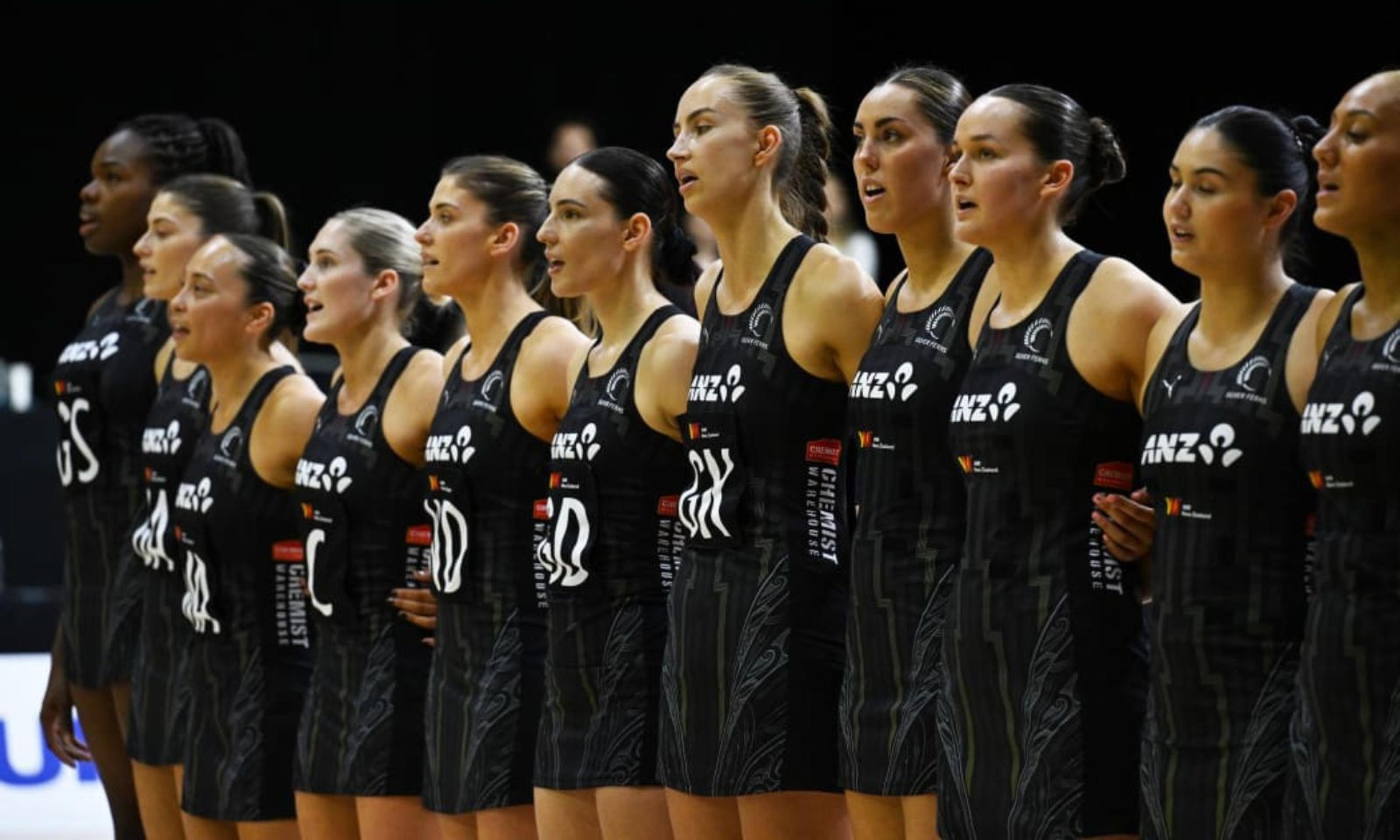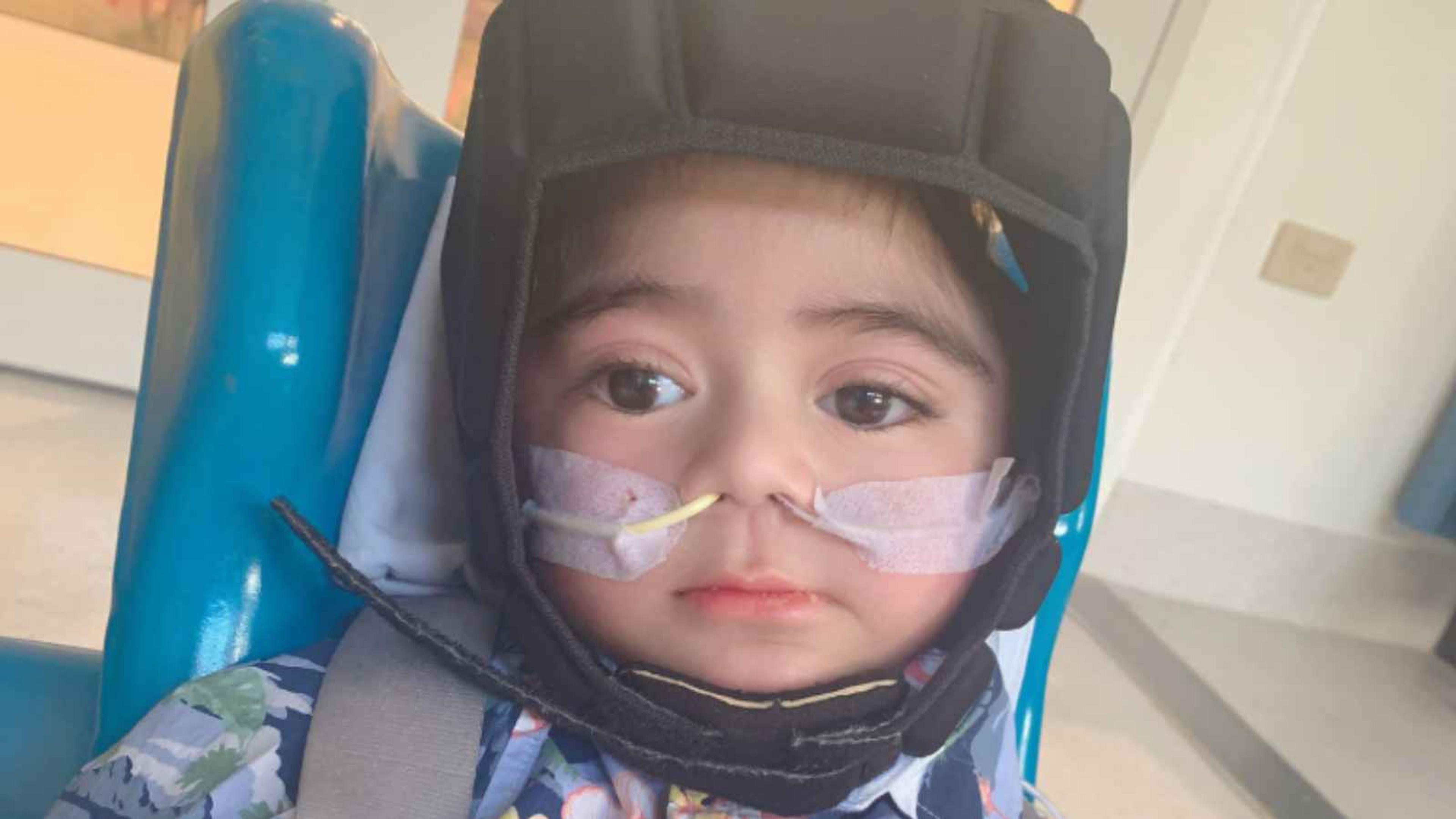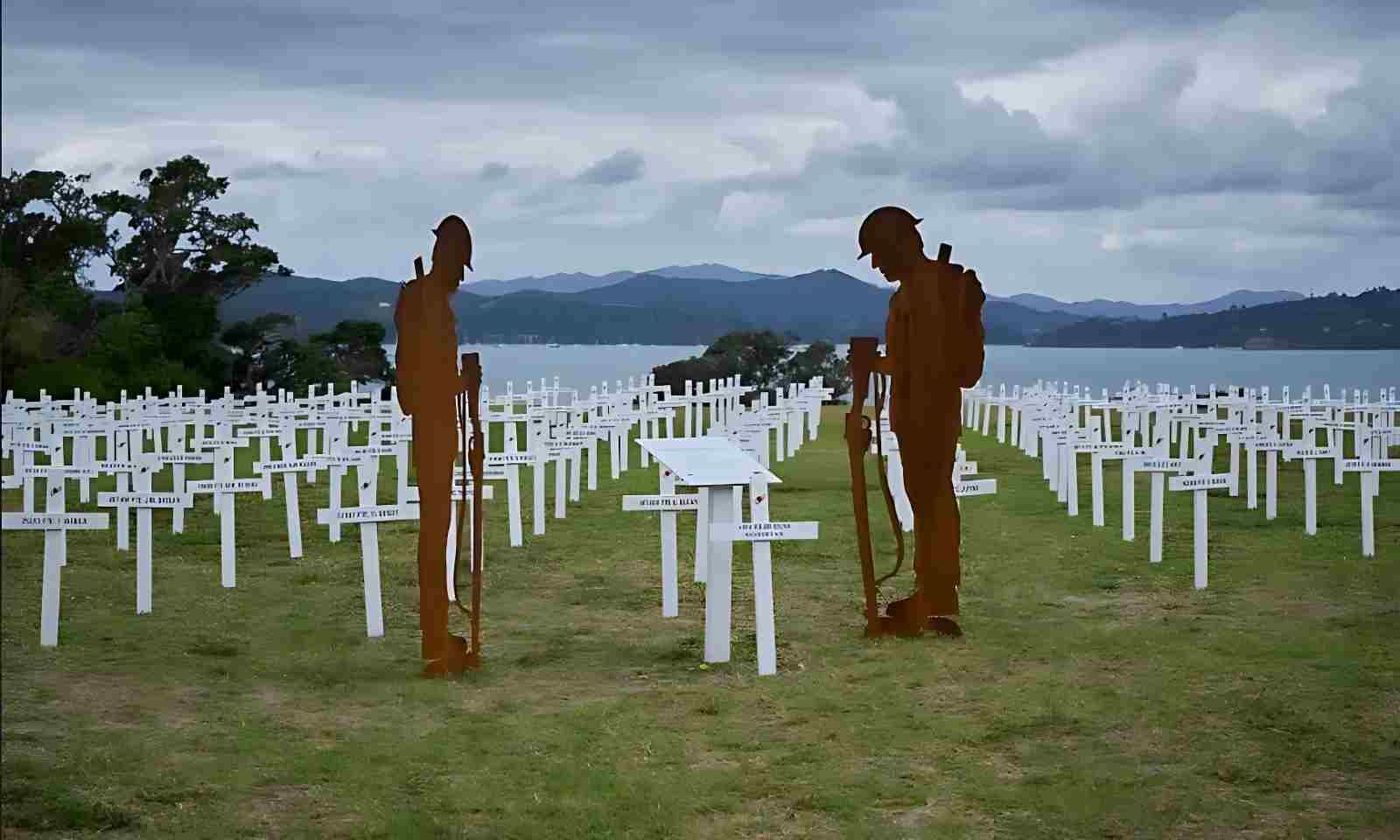

ANZAC Day Dawn Service held at the Military Cemetery in Suva, Fiji.
Photo/FijiGovt/Facebook
'We will remember': Pacific nations unite to honour a legacy of courage and mateship
As the world marks 110 years since the allies' landings at Gallipoli, solemn ceremonies across the Pacific pay tribute to those who fought and sacrificed their lives in the First World War.


US funding cuts threaten to 'dry up' future of Pacific scientists - expert


Immigration reassesses toddler's declined visa request as Children's Commissioner steps in

Inked across lands: How Pacific tattoo art is thriving in Germany

US funding cuts threaten to 'dry up' future of Pacific scientists - expert


Immigration reassesses toddler's declined visa request as Children's Commissioner steps in
Millions of people around the world, including those in the Pacific, took time on Friday to honour the brave individuals who fought alongside New Zealand and Australia in World War I.
This year marked 110 years since the ANZAC troops landed at Gallipoli in Turkey, a significant event in history.
Ceremonies were held in several Pacific nations, including Sāmoa, Tonga, Papua New Guinea, the Cook Islands, the Solomon Islands, and Niue.
These gatherings were held to remember those who fought and died in the challenging Gallipoli campaign.
The eight-month battle resulted in the deaths of more than 11,000 ANZAC troops and over 100,000 soldiers from other countries, including those from the Pacific.
In Fiji, Acting Prime Minister Viliame Gavoka led a moving Dawn Service at the Military Cemetery in Suva. He was joined by members of the police, military, diplomats, and special guests.
The ceremony commemorated the 110th anniversary of the Gallipoli landings, symbolising the bravery and sacrifice shared by Australia, New Zealand, and the surrounding Pacific nations.
New Zealand's High Commissioner to Fiji, Charlotte Darlow, spoke about remembering those who sacrificed in past and present conflicts.
This was her fourth ANZAC Day in Fiji, and she mentioned that the bonds between Australia, New Zealand, and Fiji have grown stronger over the years.

From left, Fiji's Minister for Policing Ioane Naivalurua, Acting Prime Minister Viliame Gavoka, New Zealand's High Commissioner to Fiji Charlotte Darlow, and Australian High Commissioner to Fiji Peter Roberts.
“The sacrifices made in conflicts past and present do not diminish with time. It is up to us to ensure they are never forgotten. This is my fourth ANZAC Day in Fiji, and I’ve witnessed how our support has grown stronger and more responsive.”
The service featured traditional elements like laying wreaths, playing the Last Post, and a moment of silence to honour those who served.
Cook Islands commemorate the fallen
The government and the Cook Islands Returned Services Association (RSA) organised a dawn service at Rarotonga's Ministry of Justice building.
The event included a parade of veterans, active military members, and their families.

Cook Islands Prime Minister Mark Brown, centre, says More than 500 Cook Islands men volunteered during World War I, a remarkable commitment from a small island nation, many of whom never returned home. Photo/OfficeOfThePM
Prime Minister Mark Brown called on all Cook Islanders to pause and reflect on the powerful legacy of service, sacrifice, and solidarity that ANZAC Day represents, particularly as this year marks the Cook Islands' 60th year of self-governance.
“This ANZAC Day holds profound meaning for our nation. It is a moment not only to honour the courage of those who served in war, but to recognise how their legacy lives on in the freedoms we enjoy today, and in the identity we have forged as a proud Pacific nation.”
After laying wreaths to honour the fallen, light refreshments were served at the gathering.
The RSA also held a special gathering at its cemetery for the family of Tetuanui Arapari (Fariu), a WWI veteran. The RSA also awarded two members of its Executive with Life Membership awards.

Deputy Prime Minister Tuala Tevaga Ponifasio pays tribute to ANZACs in Apia. Photo/Supplied
Sāmoa remembers the ANZACs
Deputy Prime Minister Tuala Tevaga Ponifasio says Sāmoa unites to remember those who fought for freedom and peace.
Tuala says that while many Sāmoans have not personally experienced war, its impact has shaped the values of peaceful living today.
He encouraged everyone to keep the memory of the brave soldiers alive, saying, “We wear on our hearts the poppy of remembrance.
"For today and forever, let us never forget those who made the greatest contribution to ensure our security. We will remember.”
The ceremony in Apia brought together diplomats, the Head of State and Masiofo, and representatives from New Zealand and Australia, highlighting Sāmoa’s strong ties with its Pacific neighbours.

ANZAC Day at the Bomana War Cemetery in Papua New Guinea. Photo/dva.gov.au
PNG pays tribute
In Papua New Guinea, over 3000 people came to Sohano and Bomana Cemetery in Port Moresby to pay their respects.
Among them were New Zealand and Fiji representatives Peter Zwart and Jackson Evans. They were welcomed by Alex Kerangpuna, PNG’s Acting Chief Secretary, and Clement Totavun, the Department of Economic Development, Trade and Industry Secretary.
Totavun pointed out that the Bougainville government hopes to collaborate further with Fiji as an island state. The gathering also focussed on fostering collaboration between PNG and Fiji in areas like tourism and other shared interests.
“Bougainville was willing to learn from Fiji’s experience in both tourism and water bottling. We hope your visit could lead to further collaboration between Fiji as an island state and Bougainville,” Kerangpuna says.

Field of Remembrance - 569 crosses at the Waitangi Treaty Grounds representing soldiers from the 28 (Māori) Battalion who were killed in action and buried overseas. Photo/Supplied
ANZAC Day at Waitangi
This year’s ANZAC Day celebrations at the Waitangi Treaty Grounds centred on honouring the sacrifice and service of New Zealand veterans who have served in various conflicts and peacekeeping missions since World War II.
The Waitangi National Trust and the 28 (Māori) Battalion Taitokerau Association (A Coy) held a commemorative service at the Upper Treaty Grounds. The 28 (Māori) Battalion has a unique link to the Waitangi Treaty Grounds, as its soldiers were present during the Treaty signing’s centennial celebration in 1940, just before they went off to fight in Africa and Europe.
Since 1945, New Zealand’s Defence Force has shown “courage and commitment” in various conflicts, including the Korean and Vietnam wars, as well as in peacekeeping roles in places like Sinai, Bosnia, Timor-Leste, and the Solomon Islands.

Australian and New Zealand defence forces, and French armed forces in New Caledonia and other multiple partner nations gather in Nouméa for an Anzac Day service. Photo/Supplied
In Afghanistan, New Zealand forces played a significant role in rebuilding and maintaining security, with 10 personnel making the ultimate sacrifice. Today, the Defence Force continues to meet global challenges, offering help during disasters, maintaining peace, and ensuring maritime security.
Ben Dalton, the CEO of the Waitangi Treaty Grounds, says ANZAC Day is a chance to recognise the efforts of all New Zealanders during wartime. He adds that everyone - men, women, and even children - play a part, whether at the front line or home front, supporting those who went to war and caring for families and communities.